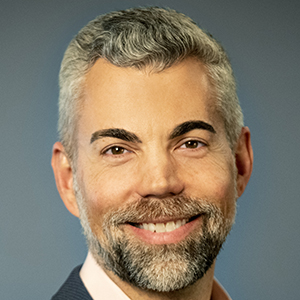
Wellness Report – By Chris Platanos
Well-being practices bring energy and presence to training
 As training and development professionals, we understand the importance of bringing our best selves to the individuals and teams we serve. When we board a plane and listen to the safety briefing, they tell us to put our oxygen mask on first in case of an emergency. Why? We can only help and serve others when we prioritize our own well-being.
As training and development professionals, we understand the importance of bringing our best selves to the individuals and teams we serve. When we board a plane and listen to the safety briefing, they tell us to put our oxygen mask on first in case of an emergency. Why? We can only help and serve others when we prioritize our own well-being.
This article will highlight core well-being practices that help us bring the sustainable energy and presence needed to be at our very best. It is also meant to support our team members who are exploring enhancing their overall well-being, which is used to describe optimal mental, physical and spiritual health.
This article will explore four core areas critical to enhancing our overall well-being. Hopefully it’ll highlight an area or two that, with intentional focus, will enhance your overall well-being allowing you to serve at your highest level.
Read More About Well-Being
Please note that there are other valuable approaches not included in this article. Many have found beneficial solutions like present moment awareness, importance of habits and optimizing a morning routine.
For additional depth on these topics, please check out a previous article, Our Wellness Journey. You can find the article, published as a Bonus Focus feature article in August 2021, at
www.l-ten.org/bonus-focus/our-wellness-journey/.
Wherever our attention goes, energy flows.
We will review each of these areas separately, but they are all interconnected – making progress in one area enhances other areas. The opposite is also true. Giving focused attention and energy to enhance any of these four areas will have a cumulative impact on our overall well-being and be time well spent together.
1. Sleep
Yep, shocking.
There continues to be more research coming out daily on the importance of prioritizing sleep. In fact, several books, podcasts, apps and videos are dedicated to this topic.
People tend to have a particular narrative around sleep, i.e., “I am not a good sleeper” or conversely, “I am a great sleeper.” Whatever our narrative is, it tends to perpetuate itself.
Below are a couple of pointers that might be helpful to reflect upon:
- What is my narrative, the story I tell myself, on sleep?
- Do I prioritize sleep and aim to get seven to eight hours nightly.
- I have a bedtime routine that possibly includes eating earlier in evening, limiting consumption of alcohol, winding down from electronics, i.e., TV, cellphone, etc.
Bonus: Getting natural light into your eyes within the first 15 to 30 minutes resets your hormone levels. Thank you, Andrew Huberman.
2. Movement
This is a broad category that incorporates workouts, running, walking, flexibility, stretching, yoga, etc., daily. Again, the story we tell ourselves is critically important.
There is a plethora of options when it comes to moving our bodies. Each has advantages and disadvantages and risks. The best form of movement is whatever works for you, taking into consideration your current level of fitness, goals and what you enjoy doing daily.
Below are some approaches that might be helpful to consider:
- I prioritize movement daily.
- I consider walking an important component of movement.
- If I miss a day, I don’t beat myself up and move forward embracing this moment and am grateful for the opportunity to move my body.
- I incorporate flexibility (such as yoga or post-workout stretching) into my routine.
Bonus: Consistency always trumps intensity and spending time moving outside in nature is a gift. Observe the positive body language of people after a hike or walk in nature.
3. Intake (Hydration & Food)
Whatever we focus our attention on and track consistently, increases our awareness.
One of the simplest, and most often overlooked practices is hydrating daily. When we refer to hydration, we are not talking about our daily coffee intake.
We all know the importance of staying hydrated, especially in the winter months. This simple practice of tracking your water intake could be one of the most important things you can do to enhance your overall well-being.
Note: If you are not sure of how much water you drink each day, have afternoon headaches or see color in your urine, you most likely are chronically dehydrated like an estimated 75% of us in the United States.
Where do we start with food? This topic has a lot of strong opinions around it and continues to evolve. We label ourselves as meat-eaters, pescatarian, vegetarian or vegan.
Over the years, many have found limiting meat or eating a meatless diet along with eating within a specific window of time, i.e., intermittent fasting, helps our bodies have more energy and feel better.
Obviously, we all know how good sugar is for us, so eliminating or limiting foods high in sugar also serves us well.
Below are a few points to reflect on:
- I view food as fuel for a healthy body.
- I know how much water I drink and prioritize hydration early in and throughout the day.
- I eat consciously, slowing my pace down, which not only helps my digestion, but the quantity that I consume.
- I am open to research as it evolves and focus energy on my hydration and food intake, understanding their importance.
Bonus: Approximately 20 to 30 minutes after a meal, journal how you feel. Do this for a few weeks and you will notice patterns that bring greater awareness of what foods serve your body, and what foods don’t. Also, taking a short walk after a meal may positively impact digestion.
4. Stillness
Who has heard someone say, “I wish I never started meditating”? No one. Why? Because no one in the history of the world has ever uttered those words.
The term “meditation” does carry baggage with it because of what we think a meditation “should look like” and previous experiences in attempting to meditate, etc.
Hence, let’s use the word “stillness” or “silence.” Our choice of words, along with the story we tell ourselves (our narrative), impacts our thoughts, emotions and actions.
There is no “right” way to practice stillness, but a mindset of loving kindness, to ourselves, is integral to our experience.
An example of this mindset is when we sit down in stillness, and our mind wanders off. Do we become frustrated or do we look at this experience as a gift of awareness, bringing our attention back to our breath? In fact, the act of becoming aware when we are lost in thought is a gift of expanding awareness vs. becoming frustrated. Practicing loving kindness and giving ourselves grace is not only important, but imperative to maintain a consistent and enjoyable stillness practice.
The depth of stillness provides a feeling of wholeness and interconnectedness. It also allows additional space in focusing our energy inward as our day unfolds – allowing us to respond vs. react. We become the observer, aware of our thoughts vs. being caught up in the “thought-feeling-emotion” loop.
What we focus on expands, including stillness. Any energy we spend in this area allows us to gain a glimpse into our true essence.
A quick analogy might be helpful. When we dive into a swimming pool, being immersed in the water represents our thoughts, feelings and emotions. As we “step back” in stillness, we can step out of the pool on the deck as the observer of our thoughts, feelings and emotions. We are the awareness.
Bonus: Start small, taking one to three conscious breaths a few times per day. Consider some final reflection prompts:
- What is my narrative around stillness?
- I intentionally prioritize stillness as a part of my daily well-being routine.
- I take one conscious breath, understanding that it provides space, allowing me to be in touch with my true essence.
- I practice stillness in loving kindness, embracing and observing how it unfolds without judgement.
Conclusion
So, what is one area (sleep, movement, intake, stillness) that you will intentionally focus on to enhance your overall well-being? Thank you for reading – wishing you and the teams you serve continued well-being.
 Chris Platanos is director, commercial training & development, for Alnylam Pharmaceuticals, and a member of the LTEN Advisory Council. Email Chris at cplatanos@alnylam.com.
Chris Platanos is director, commercial training & development, for Alnylam Pharmaceuticals, and a member of the LTEN Advisory Council. Email Chris at cplatanos@alnylam.com.








